Now that 2010 has come to a close, we’re hopping into our time-machine, pumping it full of 1.21 gigawatts worth of electricity and taking a quick look at the year’s biggest news stories revolving around the PlayStation brand and video games in general.
PlayStation Motion Controller Named – Introducing the PlayStation Move
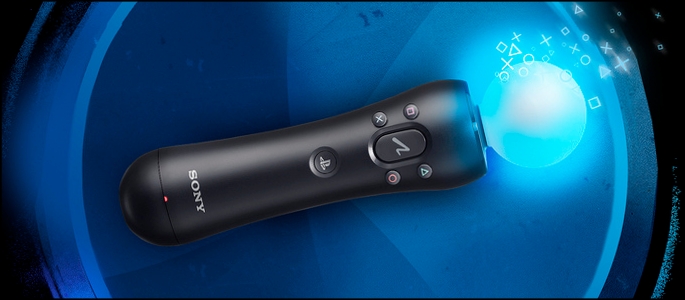 When Dr. Richard Marks, head of R&D at Sony Computer Entertainment took the stage at Sony’s press conference during E3 2009, he first introduced the PlayStation 3’s motion-controller. The motion-controller would be Sony’s answer to the Nintendo Wii’s domination of the casual market. When it was first debuted, it was known only as the PS3’s “motion-controller” — although it was heavily rumored to be named “Arc” — and it stayed that way until Game Developers Conference in 2010. There it was dubbed the PlayStation Move and the first games for the device were made playable on the show floor. The PlayStation Move instantly impressed with its unprecedented accuracy.
When Dr. Richard Marks, head of R&D at Sony Computer Entertainment took the stage at Sony’s press conference during E3 2009, he first introduced the PlayStation 3’s motion-controller. The motion-controller would be Sony’s answer to the Nintendo Wii’s domination of the casual market. When it was first debuted, it was known only as the PS3’s “motion-controller” — although it was heavily rumored to be named “Arc” — and it stayed that way until Game Developers Conference in 2010. There it was dubbed the PlayStation Move and the first games for the device were made playable on the show floor. The PlayStation Move instantly impressed with its unprecedented accuracy.
Duke Nukem Forever Revived by Gearbox Software
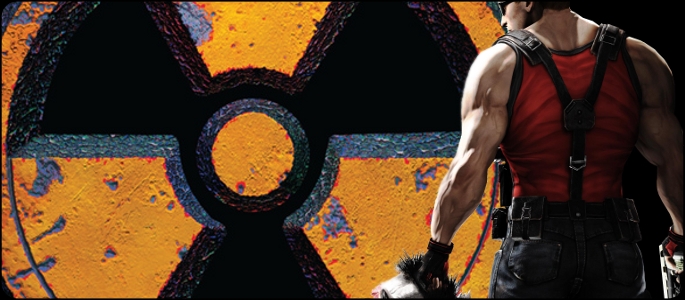 Duke Nukem has remained one of the most iconic figures in video games for almost 2 decades. Duke Nukem Forever is a sequel to Duke Nukem 3D which released back in 1996. The title eventually earned its name of ‘Forever‘ as it has been in development for over 12 years. Developer 3D Realms promised a few release dates, but the game was delayed again and again. In 2009, 3D Realms seemingly ceased internal development of the game amidst a company-wide downsizing. This past September during PAX, Gearbox Software, most recently known for their smash-hit Borderlands, announced that they’d acquired the rights to the Duke Nukem IP and would be finishing the game once and for all.
Duke Nukem has remained one of the most iconic figures in video games for almost 2 decades. Duke Nukem Forever is a sequel to Duke Nukem 3D which released back in 1996. The title eventually earned its name of ‘Forever‘ as it has been in development for over 12 years. Developer 3D Realms promised a few release dates, but the game was delayed again and again. In 2009, 3D Realms seemingly ceased internal development of the game amidst a company-wide downsizing. This past September during PAX, Gearbox Software, most recently known for their smash-hit Borderlands, announced that they’d acquired the rights to the Duke Nukem IP and would be finishing the game once and for all.
PlayStation Phone
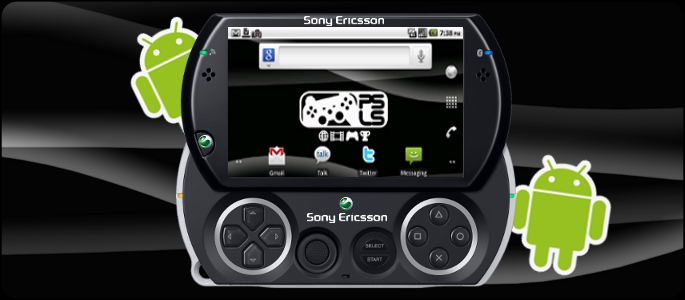 Though there had been numerous rumors regarding the possibility of a PlayStation Phone, nothing ever surfaced. That is until October 26th when respected tech-blog Engadget leaked pictures of a Sony Ericsson branded smartphone that featured the icon PlayStation face-buttons. Since then more images, even videos of the phone in action, have been leaked. Just recently, trademarks were uncovered that hint toward the name Xperia Play for the final unit which is currently codenamed Zeus Z1. Reports this week peg the “PlayStation Phone” for a Spring 2011 release date.
Though there had been numerous rumors regarding the possibility of a PlayStation Phone, nothing ever surfaced. That is until October 26th when respected tech-blog Engadget leaked pictures of a Sony Ericsson branded smartphone that featured the icon PlayStation face-buttons. Since then more images, even videos of the phone in action, have been leaked. Just recently, trademarks were uncovered that hint toward the name Xperia Play for the final unit which is currently codenamed Zeus Z1. Reports this week peg the “PlayStation Phone” for a Spring 2011 release date.
Project $10
 Certain game retailers, such as GameStop, buy used games back from consumers at low prices, turn around, and sell them alongside new retail copies of games. The used copies generally sell for $5-10 less than the new copies, which often has budget-conscious gamers choosing to buy used. This eats away from game publisher’s bottom line as revenue stream (new game sales) is taken away from the publisher and instead the retailer earns the revenue (used game sales). To combat this growing trend, EA devised a plan to sway consumers to purchase new copies over the cheaper, used games. Project $10 is an initiative where new, retail copies of games packed in a one-time use voucher needed to unlock the online portion of the game. Anyone buying the game second-hand, would have to purchase the code to unlock the online mode for $10.
Certain game retailers, such as GameStop, buy used games back from consumers at low prices, turn around, and sell them alongside new retail copies of games. The used copies generally sell for $5-10 less than the new copies, which often has budget-conscious gamers choosing to buy used. This eats away from game publisher’s bottom line as revenue stream (new game sales) is taken away from the publisher and instead the retailer earns the revenue (used game sales). To combat this growing trend, EA devised a plan to sway consumers to purchase new copies over the cheaper, used games. Project $10 is an initiative where new, retail copies of games packed in a one-time use voucher needed to unlock the online portion of the game. Anyone buying the game second-hand, would have to purchase the code to unlock the online mode for $10.
Infinity Ward/Activision Fiasco
 Although Modern Warfare 2 was a runaway success, the story behind the game’s developer’s and publisher’s relationship did not have a happy ending. Rumors had indicated that there was a sticky situation brewing between Infinity Ward and Activision. Shortly after, news broke of Infinity Ward’s Vincent Zampella and Jason West being dismissed by Activision which was citing “insubordination” and “breaches of contracts”. Following the release of West and Zampella, nearly half of the company resigned. A handful of lawsuits ensued which to this day have not yet been settled. This was just the beginning of Activision’s notoriety across the gaming industry.
Although Modern Warfare 2 was a runaway success, the story behind the game’s developer’s and publisher’s relationship did not have a happy ending. Rumors had indicated that there was a sticky situation brewing between Infinity Ward and Activision. Shortly after, news broke of Infinity Ward’s Vincent Zampella and Jason West being dismissed by Activision which was citing “insubordination” and “breaches of contracts”. Following the release of West and Zampella, nearly half of the company resigned. A handful of lawsuits ensued which to this day have not yet been settled. This was just the beginning of Activision’s notoriety across the gaming industry.
PlayStation Plus
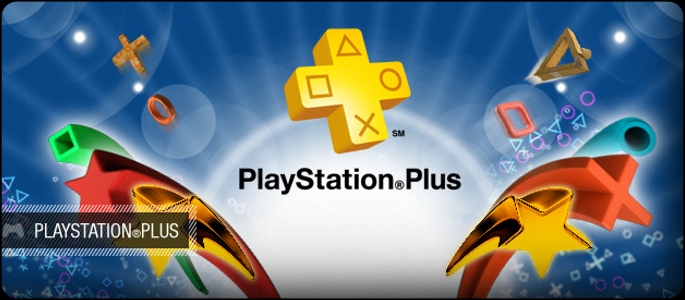 One of the PlayStation 3’s biggest selling-points over the Xbox 360 was the free online-gaming straight out-of-the-box thanks to the PlayStation Network. So when rumors surfaced of a paid-subscription service for the PlayStation Network, fans expressed both interest and disgust. Since details weren’t clear regarding the service, many believed it would be Sony’s answer to Xbox LIVE where users would have to pay to play games online. Sony finally announced ‘PlayStation Plus’ formally and the service was posed merely as an option thing, and wouldn’t affect the existing free PlayStation Network model.
One of the PlayStation 3’s biggest selling-points over the Xbox 360 was the free online-gaming straight out-of-the-box thanks to the PlayStation Network. So when rumors surfaced of a paid-subscription service for the PlayStation Network, fans expressed both interest and disgust. Since details weren’t clear regarding the service, many believed it would be Sony’s answer to Xbox LIVE where users would have to pay to play games online. Sony finally announced ‘PlayStation Plus’ formally and the service was posed merely as an option thing, and wouldn’t affect the existing free PlayStation Network model.
EA Changes Taliban Name to Opposing Forces in Medal of Honor
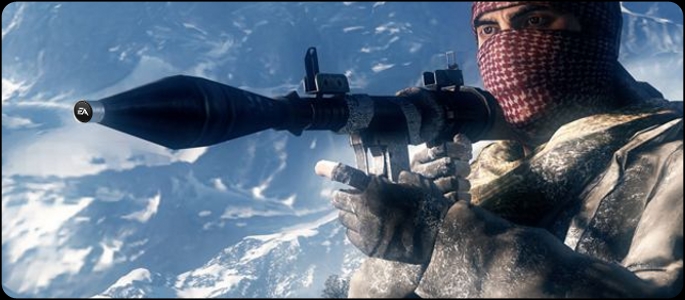 From the moment it was revealed that Medal of Honor would be taking a more realistic “modern warfare” approach with the franchise reboot, controversy was everywhere. Mainly due to the fact that the game took place in the battlefields of Afghanistan against the Taliban. Family members of those serving in the military as well as some top-level politicians voiced concerns over the fact that someone would have to take on the role of the Taliban in the game’s multiplayer mode. EA eventually caved to the outcry and changed the Taliban to the “opposing force” in multiplayer modes of the game.
From the moment it was revealed that Medal of Honor would be taking a more realistic “modern warfare” approach with the franchise reboot, controversy was everywhere. Mainly due to the fact that the game took place in the battlefields of Afghanistan against the Taliban. Family members of those serving in the military as well as some top-level politicians voiced concerns over the fact that someone would have to take on the role of the Taliban in the game’s multiplayer mode. EA eventually caved to the outcry and changed the Taliban to the “opposing force” in multiplayer modes of the game.
Gran Turismo 5 Last Minute Delay
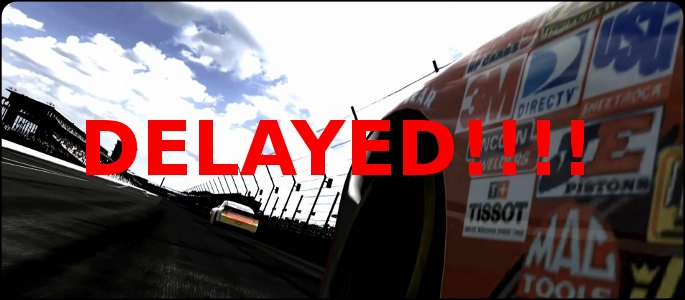 At E3 2010, it was announced that Gran Turismo 5 would be releasing on November 2nd, after 5 years of development. But on October 13th, just over 2 weeks out from the game’s anticipated release date, it was announced that it would be delayed. Even worse, no new release date was given, only a promise that it would release “before the holidays”. And that vague promise did nothing to calm the masses who feared the worst: that Gran Turismo 5 would be delayed into 2011. Thankfully, Gran Turimso 5 eventually released on November 23rd. There is no doubt that the last-minute delay hurt the game’s initial reception.
At E3 2010, it was announced that Gran Turismo 5 would be releasing on November 2nd, after 5 years of development. But on October 13th, just over 2 weeks out from the game’s anticipated release date, it was announced that it would be delayed. Even worse, no new release date was given, only a promise that it would release “before the holidays”. And that vague promise did nothing to calm the masses who feared the worst: that Gran Turismo 5 would be delayed into 2011. Thankfully, Gran Turimso 5 eventually released on November 23rd. There is no doubt that the last-minute delay hurt the game’s initial reception.
ApocalyPS3
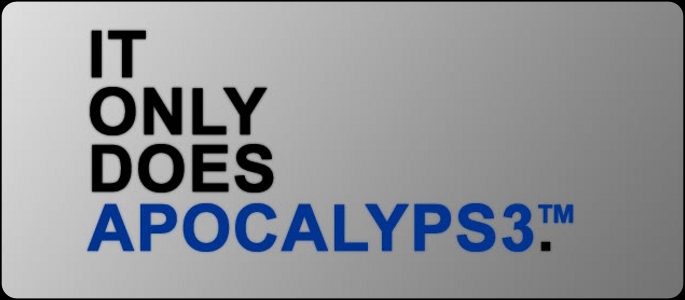 No news in 2010 was as large or severe as the dreaded “internal clock” bug that nearly decimated a majority portion of the PlayStation 3 install base, particularly, owners of the original “fat” PS3 models. The PS3 was strangely programmed to think that there was a leap year every even-numbered year, which caused a conflict between the PS3’s system clock and the OS clock. The bug didn’t rear its ugly head in 2008 because it was actually a leap year. In 2010, though, all hell broke loose. PlayStation 3 owners couldn’t start their games and instead were greeted with a strange error code. So what did Sony do to fix this? Nothing. In fact, once March 1st rolled around the two clocks were back on track and the erratic behavior was ceased.
No news in 2010 was as large or severe as the dreaded “internal clock” bug that nearly decimated a majority portion of the PlayStation 3 install base, particularly, owners of the original “fat” PS3 models. The PS3 was strangely programmed to think that there was a leap year every even-numbered year, which caused a conflict between the PS3’s system clock and the OS clock. The bug didn’t rear its ugly head in 2008 because it was actually a leap year. In 2010, though, all hell broke loose. PlayStation 3 owners couldn’t start their games and instead were greeted with a strange error code. So what did Sony do to fix this? Nothing. In fact, once March 1st rolled around the two clocks were back on track and the erratic behavior was ceased.








